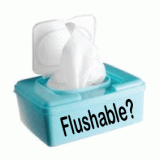When plumbing emergencies occur in the middle of the night (like they most often seem to do) our first instinct is generally to pick up the phone and call a 24-hour plumbing service company, but we’ll be the first to tell you, DON’T JUMP TOO SOON! You may be able to avoid the high emergency plumbing fees by following these 4 simple tips!
1. Ask yourself, “Is this really a plumbing emergency?”
90% of plumbing emergency calls are due to an overreaction and under-education of the problem. If you call an emergency plumber for a minor plumbing issue, you can bet on paying nearly double, if not triple the standard cost of these repairs. Instead, take a few minutes now, to educate yourself a little bit about your home plumbing system and know what to do and what to look for in case of an emergency.
2. Locate the problem.
If it’s not something as obvious as an overflowing toilet or soggy carpet, plumbing problems can still be fairly easy to locate, for the most part. Just use your senses! Listen for running water or drips. Look for watermarks on walls, water stains on carpets, bubbling paint, or buckling wood. Use your fingers to feel for moisture. These are all good indicators of a problem.
3. Determine the severity of the problem.
Then determine how bad it is. Is it a flood or just a small puddle? Is it a burst or broken pipe or is it a small leak? Is it causing serious water damage to your home, or is it just superficial? Is it affecting your family’s health and safety or is it causing no serious harm? You’ll have to be the better judge here.
4. If possible, make it stop and do what you can to put it off until the morning.
If it’s just a small leak, a small puddle, a superficial issue and not really causing any serious harm, make it stop and do what you can to put it off until the morning. Follow this advice to help do just that:
TURN OFF THE WATER:
If it is a local fixture issue, you can do this easily by turning off the water shutoff valve located on the supply line near the fixture. In general, just look for the little knob under, below or next to the fixture itself.
GRAB THE PLUNGER:
For toilet, sink or bathtub stoppages, grab the plunger! 2 out of every 3 local drain clogs can be cleared with a simple plunger. So grab the plunger and get to work!
CLEAN UP AND TRY TO CONTAIN THE MESS:
Grab the mop while you’re at it! This job is never fun, but it will keep soaked floors from getting ruined overnight. Use extra towels to clean up any other spills and if you couldn’t turn the water off, try to keep small leaks and drips contained using a simple bucket or pot.
Now you can call your local plumber.
After you’ve followed the steps above, give your local plumber a call to set up an appointment for the morning. Without it being an emergency call, they should be able to wave any type of emergency fees and you are one step closer to getting your problem fixed!
However, you should also know when to REALLY call the plumber for an emergency.
Now, we know emergency plumbing fees are never fun, but you should NEVER put off a REAL plumbing emergency. If your house is flooded, if you have a broken or burst water pipe, if it’s causing serious water damage or it’s affecting your family’s health and safety, turn off your main water supply (generally located outside of your home on the side of the house) and call your local plumber immediately!
Major plumbing emergencies should never be put off, but hopefully, now you can determine what makes a plumbing emergency, a PLUMBING EMERGENCY!



